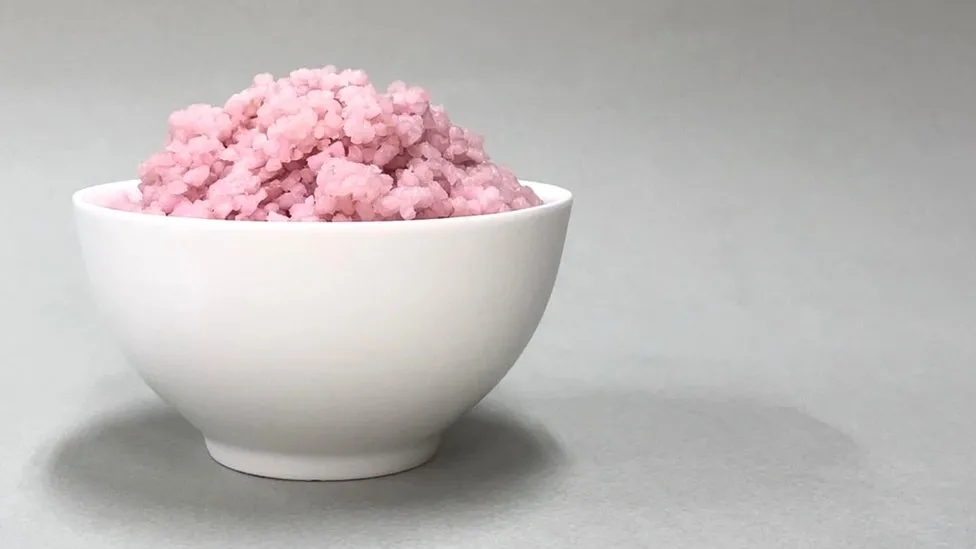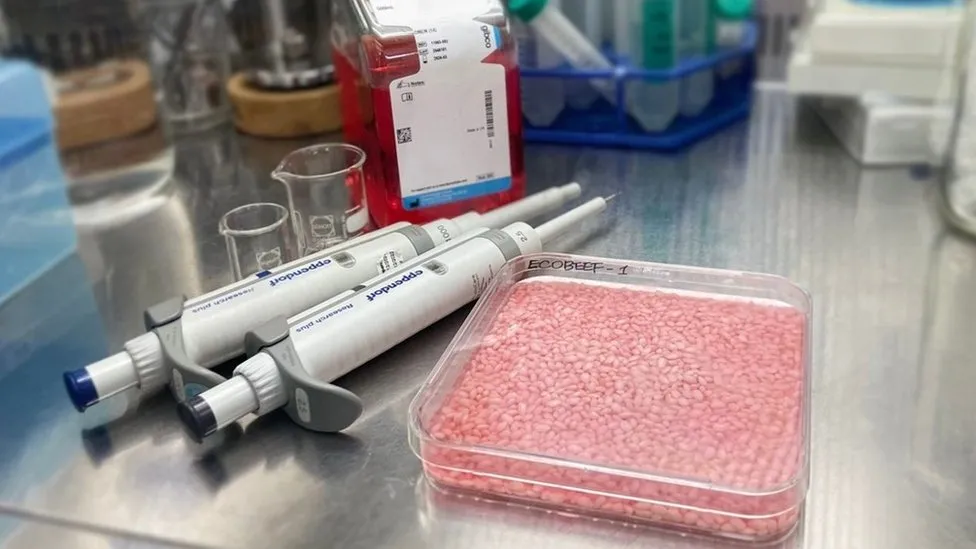Scientists have developed a new type of hybrid food - a "meaty" rice that they say could provide an affordable and environmentally friendly source of protein.
The porous grains are packed with beef muscle and fat cells, grown in the lab.
The rice was first coated in fish gelatin to help the beef cells adhere, and the grains were placed in a Petri dish for up to 11 days of culture.
The researchers say the food could serve as "famine relief, military rations or even space food" in the future.
It remains to be seen whether consumers will accept it once it hits the market.
Hybrid rice is apparently slightly harder and more brittle than regular rice, but packs more protein, reports the Matter Journal.
It has 8% more protein and 7% more fat, according to a team at South Korea's Yonsei University.
And, compared to regular beef, it has a smaller carbon footprint, since the production method eliminates the need to raise and farm large numbers of animals.
For every 100 grams (3.5oz) of protein, hybrid rice is estimated to emit 6.27 kg (13.8 lb) of carbon dioxide, while beef production emits eight times more at 49.89 kg, they said.
Researcher Sohyeon Park explained: "We usually get the protein we need from cattle, but cattle production consumes a lot of resources and water and emits a lot of greenhouse gases.
"Imagine getting all the nutrients we need from cell-cultured protein rice.
"Rice already has a high nutrient level, but adding cells from livestock can increase it even more."
He said: "I didn't expect the cells to grow so well in rice. Now I see a world of possibilities for this grain-based hybrid food."
'People have to be convinced'
Rice provides a scaffold or framework for the growth of meat cells and also nourishes them.
The team is not the first to explore lab-grown or cultured meat products
Since the first lab-grown burger was unveiled in London in 2013, dozens of companies around the world have joined the race to bring affordable farmed meat to market.
Singapore recently began selling the world's first farmed chicken products to consumers.
Meanwhile, Italy has backed a bill to ban lab-grown meat to protect the country's food heritage.
Critics point out that there's nothing synthetic about lab-grown meat—it's made by growing natural cells.
Professor Neil Ward, an agri-food and climate expert at the University of East Anglia, said research like this held promise for the development of healthier and more climate-friendly foods in the future, but some people needed to be convinced.
"While the cost and climate impact data look very positive, a critical test surrounds the public's appetite for this type of lab-grown food," he said.
"With lab-based alternative meats in general, the biggest possibility is probably substituting processed meats for prime cuts."
Bridget Bennellam of the British Nutrition Foundation said: "Creating a diet that supports health for both people and the planet is a major challenge. This research demonstrates an innovative new approach that could contribute to the solution."
But he added: "The findings represent a relatively small increase in the protein content of rice, which is not a high-protein food. So more work is needed if this technology is to be used as an alternative protein source to traditional animal products.





